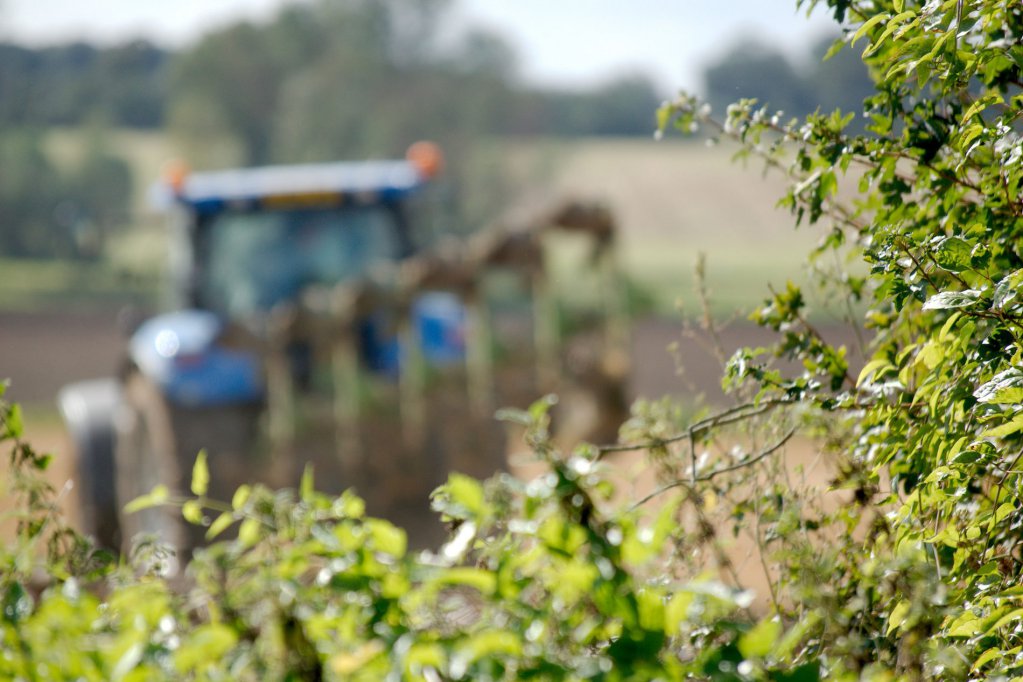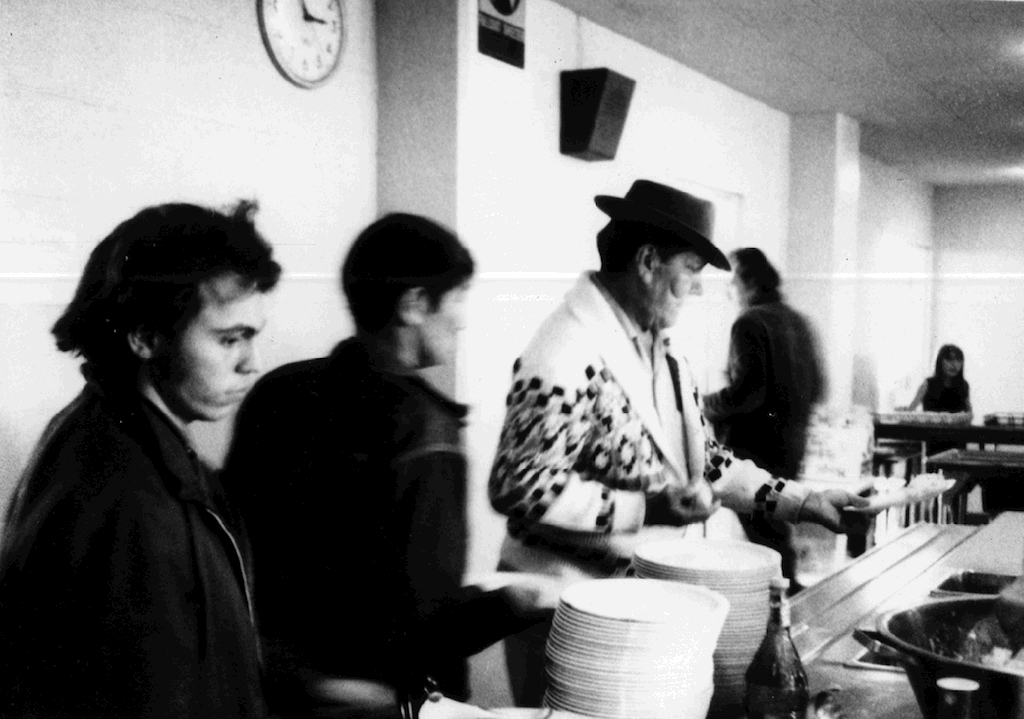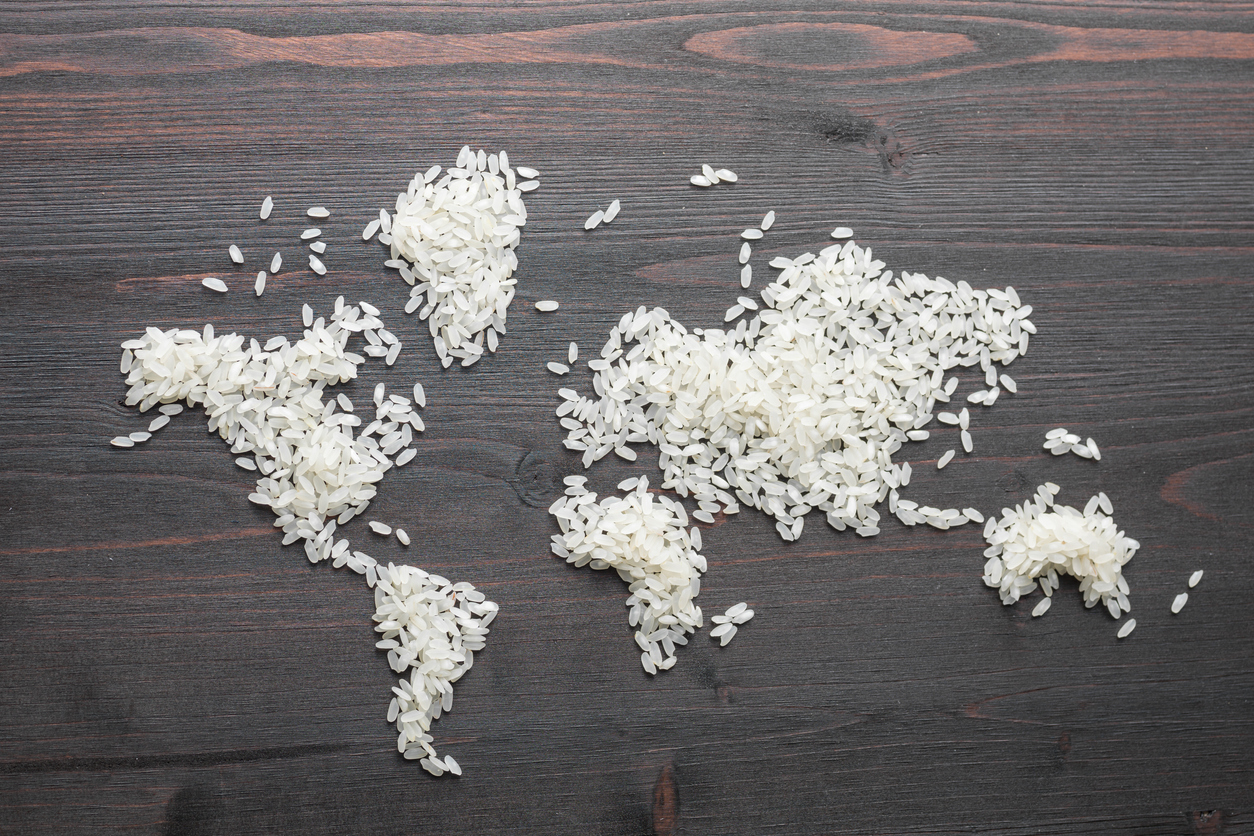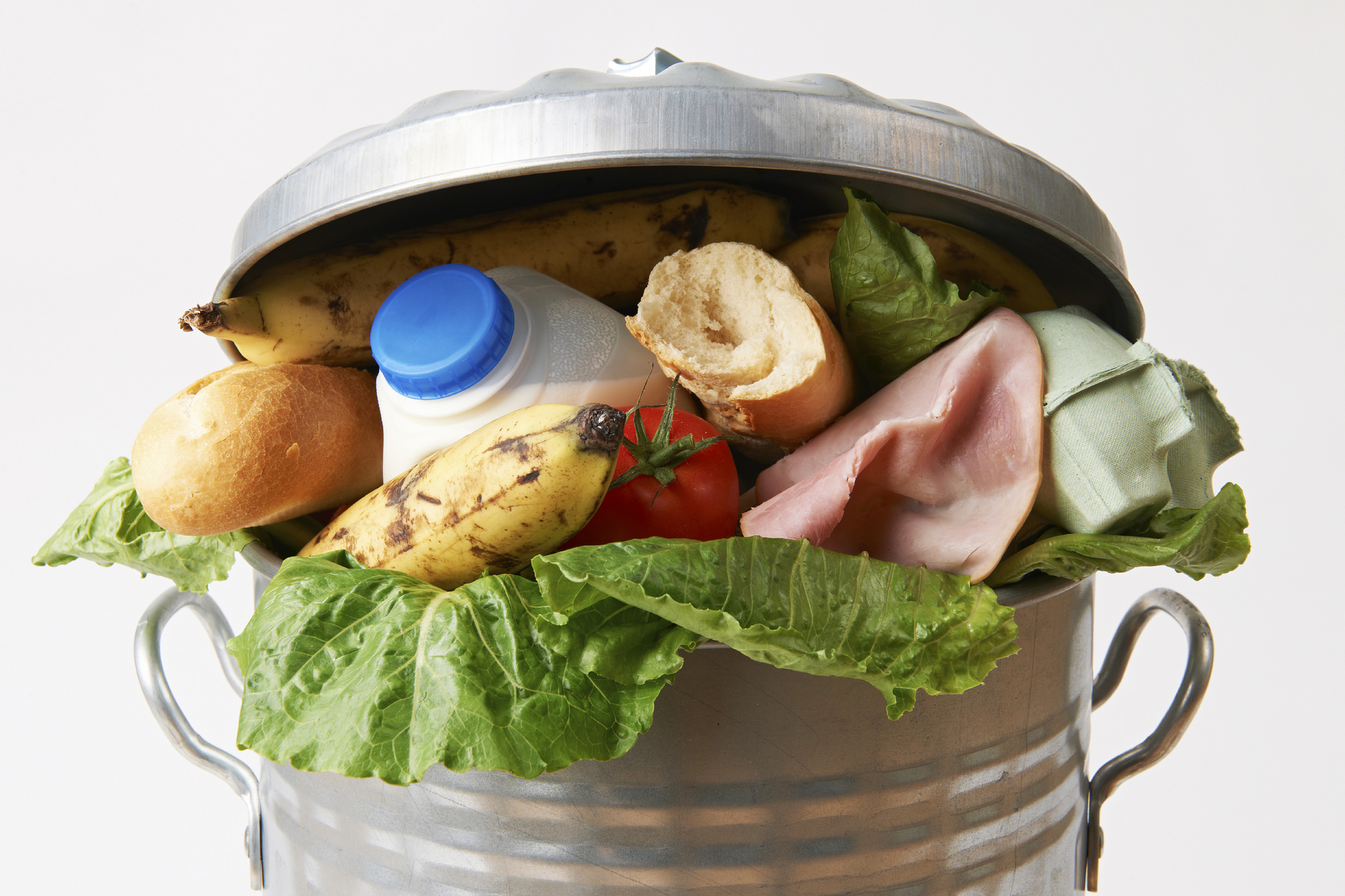
Images from: Flickr / Emuishere Peliculas, Flickr / John Kroll, Flickr / Josh Krancer; Graphic by NFE
On a Sunday morning in September, Kate Urbank stepped onto the podium at the Universalist National Memorial Church in Washington, D.C., to talk about food. Urbank is not a pastor or a member of the congregation. Instead, she is the D.C. site director for Food Rescue US, a food recovery nonprofit that helps organize volunteer deliveries of leftover food to shelters and food banks.
“I’m not particularly a churchgoer myself, but I was embraced,” Urbank says. “I told them about the statistics of hunger in D.C. and the fact that our neighbors can be hungry.”
It’s not the kind of message heard often in religious services, but Urbank’s audience didn’t seem to mind the shift from salvation and forgiveness to matters of wasted food. About 30 congregants were present, Urbank says, and they described feeling a range of emotions—anywhere from “moved” to “agitated”—at the story she told: namely, why families in the nation’s capital routinely go hungry.
Urbank’s talk coincided with anti-food waste organization AmpleHarvest.org’s annual Food Waste Weekend, a “public engagement event” that invites leaders of diverse faith communities to dedicate one weekend’s sermon, prayer or message to the issue of food waste. Although Food Waste Weekend has yet to become a household name, the unusual attempt to organize food advocates through religious communities shouldn’t be so surprising. It’s an issue that’s deeply intertwined with poverty, inequality, and respect for life—all concerns that faith communities tend to take seriously. Many religious celebrations—like Christmas in the Christian tradition or Eid al-Fatir in Islam—feature meals as a focus of communal gathering. So it’s worth asking: Could faith communities harbor a compelling solution to the problem of wasted food?
Take, for instance, the Nassau Presbyterian Church in Princeton, New Jersey, where there is a food pantry in the basement. Four times a week, the pantry provides food to families based in Mercer County as part of a network that serves up to 1,400 households a month. The food pantry system, part of a larger web of programs that include housing and work support, was jointly established in 1980 with an Episcopal church also based in Mercer County. Even “non-sectarian” food providers like the nearby Trenton Area Soup Kitchen are partially funded by religious institutions.
Considering that religious organizations already play such a large role in food disbursement, it seems they’d also be uniquely positioned to help us make a spiritual connection between the sanctity of nourishment and the transgression of misuse.
One of the main religious texts in the Hindu faith states that “all living beings” are “an expansion” of the Hindu deity Krishna, rendering the mistreatment of Earth and the elements within it a spiritually contemptible act. Similar passages exist in scriptures across multiple faiths—in Buddhist texts, for example, the “enlightened” way of eating (known as “orioki,” or “just the right amount”) is to serve and eat food in a manner that minimizes waste.
According to Gopal Patel of Hindu environmentalist group The Bhumi Project, that approach should fit right in at mosques, churches, and synagogues, too. “All faith communities recognize that food is miraculous,” he says.
“When ‘waste’ is a category for produce or land, it’s a few short steps from categorizing people as ‘waste,’” Stucky says. He leads a 21-acre farm based in Princeton that integrates theological education with small-scale, sustainable agriculture practices. He believes that theologically significant themes like death and resurrection can be manifested through food waste. Find the metaphor in this image: rotting food turned into compost that eventually feeds the land. In a similar vein, Stucky also believes that when a society regards leftover or uneaten food as ‘waste,’ it can be a sign of deeper, potentially harmful attitudes.
“The whole fraught history of colonialism is exactly that—we can lay waste to the land and also lay waste to the people,” he says.
Prominent religious leaders, as well as several religious texts, agree. In 2013, Pope Francis claimed that “throwing away food” is like “stealing from the table of those who are poor and hungry.”
In light of this, do religious people—theoretically, at least—have a unique role to play in preventing food waste?
“We [religious individuals] approach [food] from a different viewpoint,” says Pastor Jacob Bolton from the Presbyterian Huguenot Church in Pelham Manor, New York. “Because we as people of faith feel like … there is a divine other that is wanting us as humans to do good, there is a reason behind the activities and actions that we do in the name of that divine being.”
 Farminary Project at the Princeton Theological Seminary
Farminary Project at the Princeton Theological Seminary Shelled beans and harvested produce from the Farminary at Princeton, which receives food waste from a nearby food bank and reverts it to the land through a composting system
Rabbi Ira Dounn believes that values play a big role in informing the responsibilities of religious people. Hospitality, charity, and justice not only “permeate all religions,” he says, but also demand religious people act in the interest of these values.
“Who would we be as human beings if we just said, ‘that’s not my problem?’” he adds.
To narrow the divide between food waste’s theoretical implications and more practical solutions, several organizations are attempting to look at the problem through a uniquely religious lens.
Take the annual Food Waste Weekend, for example, or the “Food Steward’s Pledge”—an anti-food waste initiative that was specifically designed for religious communities—launched by the Environmental Protection Agency (EPA) in 2016. Although the Pledge is currently inactive, a 2017 snapshot of the webpage describing the program emphasizes that faith communities “understand the need to care for the well-being of all people.”
Individual congregations are tackling food waste through their own programs, too. The previously mentioned Huguenot Church partners with County Harvest—a food-rescue organization based in Westchester County, New York—to pick up leftover food after church events, and deliver it to people who need it. The Farminary in New Jersey receives food waste from a nearby food bank and reverts it to the land through a composting system.
Nana Firman is the Muslim director of Green Faith, an “interfaith coalition” based in New Jersey that has run environmental programs since 1992. She believes that using the tradition of faith narratives to frame difficult issues—calls-to-action that religious people “care about deeply,” to use her words—can go a long way in garnering support.
“We touch their hearts … when we actually use religious narratives to convey environmental messages,” says Firman. She recalls a comment someone made in response to an environmental initiative she started back in her home country of Indonesia. “‘I will do that not because the government told me to, but because God told me, in the holy Qu’ran, to do so.’”
Using this incentive, Firman created an initiative called Green Ramadan that encourages Muslims to reduce food waste during the ninth month of the Muslim year, when they observe a strict fast from sunrise to sunset to commemorate the first revelation of the Qur’an to the Prophet Muhammad. In that tradition, the fast is broken nightly—often with a big feast—and can sometimes involve a lot of leftover and uneaten food.
“All religions teach us to live simply and be moderate,” Firman says. “Religious communities can take the lead in tackling this food waste.”
But why are these more spiritually-based initiatives less familiar than other food-related religious initiatives like food banks or soup kitchens?
Although Patel points out that caring for the hungry is more of a focus in Abrahamic religions than it is in Dharmic traditions like Hinduism, he believes the visibility of hunger issues is what motivates people to give food. Waste is a somewhat different matter: it’s about loss. Hunger and waste can be a harder connection to make.
 GreenFaith
GreenFaith An interfaith coalition of activists rallies for climate action, five years after Hurricane Sandy
“Seeing hungry people, or poor people, is something very tangible,” he says. “If I throw out half an apple or half a loaf of bread, it can seem like a very small amount, and I think people just aren’t aware of how much food waste there is if you put all the waste together.”
Or perhaps the reason may lie in the relative difficulty of making long-term lifestyle changes versus engaging in discrete events, as Bolton suggests.
“It’s a whole lot easier to say we are going to do x, y, and z to help this other community,” he says. “It’s not always the easiest to say we’re going to do x, y, and z about our errors. About where we are lacking. About where we need to grow.”
He also adds that the current model, which emphasizes food provision over waste prevention, has a somewhat “missionary” appeal.
“That’s the whole missionary type aspect: ‘Hey, here’s some people that are hungry. Let’s give them food, let’s have a worship service, and let’s see if we can get conversions,’” says Bolton. “This will probably not sound all that positive, but then you leave feeling pretty good.”
Still, faith is all about overcoming seemingly insurmountable challenges, and religious leaders are optimistic that their communities are slowly increasing their engagement. Stucky, for example, believes that it would’ve been impossible for the Princeton Theological Seminary to start the Farminary 20 years ago—but things have shifted.
“My sense from where I am, and from looking back, is that there’s been a huge change in how people have been approaching this conversation,” he says.
The increased urgency of climate change has also inspired this shift, according to Dounn and Patel.
“We see people are mindful of climate change, environmental issues, hunger, and poverty issues. It’s been a priority for religious institutions,” says Dounn. He thinks that technology will ease the obstacles that make food donation difficult in some institutions like Princeton University, for example, where regulations require food be kept at a certain temperature before it can be donated. “I think that we’ll be able to leverage technology in order to provide for people.”
Patel foresees a long-term situation in which a larger portion of the population will struggle with food insecurity due to a changing climate, which will inevitably make access a pressing issue among all, not just religious, communities.
“Long-term, you’re going to see not just people in poverty struggling with food, but middle-class people also struggling to buy food,” he says. “As that happens, religious leaders are going to have to be much more aware of the issue of food waste.”
Stucky agrees. “At this point of history, it’s in the air,” he says. “We need to face the realities of the contemporary challenges that we face.”









